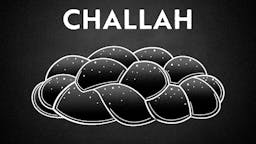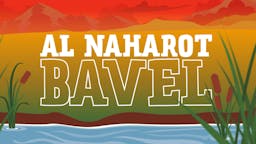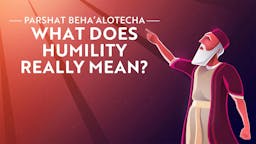What is the meaning behind Birkat HaMazon?

Why is prayer after meals important? Does God actually need our thanks and praise?
We are all so accustomed to making brachot before putting anything in our mouths. In fact, it’s one of the first things our children are taught in Jewish schools. I’m sure I’m not the only one who has memories of songs, motions, laminated bentching cards, and sticker rewards for the loudest in the room!
Yet, have you ever stopped to think about why we do this? Why do we need to bless all the food we eat? Why do we need to thank God by bentching after every meal? Are we really just thanking God for our food? As if we view God as this divine chef, and we’re just passing along our “compliments to the chef?” Does God really need our thanks? Who are WE to bless God?
We already thank God every morning, afternoon, and evening in daily prayer. What do these types of blessings around mealtime add? Why are they necessary?
Where does the idea of Bentching come from?
According to the Torah, we are commanded to thank God after eating, a literal fulfillment of the commandment in Deuteronomy Chapter 8, verse 10: “ וְאָכַלְתָּ וְשָׂבָעְתָּ וּבֵרַכְתָּ” - “When you have eaten your fill, give thanks to your God.” The Rabbis learned from this verse that if one eats a specified amount of bread, one is required to say Birkat HaMazon after the meal. The Rabbis also taught that we must say blessings both before and after eating, thus expanding the Biblical requirement.
When you take a careful look at the biblical verse, it seems that the ONLY requirement after eating a meal is to simply say…thanks. That’s it. Like “Lub a dub dub, thanks for the grub.” Wouldn’t that suffice? That honestly sounds pretty appealing. After all, Birkat HaMazon is pretty long!
There must be something more to Bentching than just saying “thank you.” To understand Birkat HaMazon, we need to understand what a blessing is.
What is a blessing?
Here’s the thing. Although it’s easy to think of Birkat HaMazon as just an extended thank you to God, the word Bracha DOESN’T simply mean thanks. Judaism is FULL of opportunities for blessings: Whether it’s seeing thunder. Witnessing a miracle. Eating food. Praying. There is even a Hasidic practice of trying to make 100 blessings a day - which isn’t actually that difficult when you add up a day’s worth of morning, afternoon, and evening prayers, not to mention a whole day of eating! Once you start to think about it, our liturgy and practice are filled with blessings, that aren’t necessarily about giving thanks. So to understand the meaning of Birkat HaMazon, we need to understand what a Bracha really is.
Using the translation of Bracha to help us out:
The problem with translating the word Bracha as “thanks” is that it simply doesn’t fit the the context of how the word first appears in the Torah. God “blessed” Adam and Eve that they should be fruitful and multiply - nothing to do with thanks there! And later on in Genesis, after witnessing how God helped Abraham defeat his enemies, Malkitzedek blesses Abraham “Baruch is Avram to God, Creator of Heaven and Earth." - again, nothing to do with thanks there either. And on the topic of Abraham, God blesses Abraham countless times - promising him that he’ll be the father of a great nation. So a ברכה can’t simply mean thanks.
Maybe the key is looking at the word itself - Bracha, and analyzing the alternate meaning of the word. The word בריכה is used in Tanakh to mean a cistern or a pool of water. For example, see 2 Kings Chapter 20, and the discussion of Chizkiyahu’s water tunnels. And this also seems to be the way it’s used in Genesis 12, when God promises Avraham he’ll be a source of blessing to the world. Maybe this alternate definition can help us understand the meaning of the word ברכה. When we recite a blessing, we are recognizing the source of the goodness. What makes this explanation so powerful is that it helps us understand why blessings sometimes function as expressions of thanks, and other times are functioning as requests. And it even helps us understand our perspective when we bless others. Like when we bless our children, we are articulating the hope that they will become a source of goodness in the world, like Avraham. The blessings that fill our liturgy - like Birkat HaMazon - function sometimes as requests, sometimes as praise of the Almighty, and sometimes as thanks, but they always function as a recognition that God is the origin, the source of all that is good. And Birkat HaMazon is just one of many mitzvot that function to ensure that we keep the Divine source in mind.
Why do we bless specifically after eating bread?
Bread is the ultimate human invention, arguably the greatest human invention. But despite this, just a few verses before the commandment of Birkat HaMazaon, the Torah reminds “man does not live on bread alone” (Deuteronomy 8:3). When we eat processed foods, like bread, we run the risk of forgetting the Divine origin of our food. We trick ourselves into thinking that not only can we live on bread alone, but that we created the bread. Recognizing that God is the source of our food frees us from this damaging mindset. Each time we say Birkat HaMazon, we have a chance to create a relationship with God. The command to thank God that we read earlier is just one line out of a larger speech Moses is giving in this chapter. And if you take a look at that speech, it’s seemingly pretty troubling. By taking a closer look at these words in context you can learn more deeply what it means to build a relationship with God, and how to truly give thanks. Rabbi Fohrman and the Aleph Beta team dive deep into these questions here.
You might also be interested in

Shir Hamaalot: Planting with Tears
Video series • Part 1 of 6 • 10 min
This video was originally created for Tisha b’Av, but it discusses the spiritual power of our tears. Do the tears that we cry actually matter? Can they make a difference? Or are they merely an expression of our suffering. Turns out, they matter a great deal…

Challah: What’s So Special About Making Dough?
Video • 8 min
Challah: What’s So Special About Making Dough?

What Are Blessings And Curses, Really?
Video • 22 min
In Parshat Ki Tavo, the Israelites are told how they should publicly bless those who keep God's commandments, and curse those who violate them, making declaration from two specific mountains – Mount Gerizim and Mount Eval. But what's so special about these mountains, and why must it be so public? Daniel Loewenstein and Beth Lesch explore the gematria, grammar and topography hidden in Ki Tavo to understand what blessings and curses really mean.

Al Naharot Bavel: By The Waters Of Babylon
Video • 3 hours
Al Naharot Bavel is part of the weekday benching, or grace after meals. It is a psalm, specifically, psalm 137, that we say before we begin the formal blessings.
Our presentation is largely taken from a webinar Rabbi Fohrman held one year on Tisha B’Av as a sort of Epilogue to a course on Shir Hamaalot. If you haven’t seen that course yet, we strongly recommend you watch it before watching this epilogue that discusses Al Naharot Bavel. You can click here to access it now.
Rabbi Fohrman explores the connection between laughter, crying and singing. He takes a closer look at Psalm 137 and how it connects to Psalm 126, the song of ascent that will be sung when the Jews return to Zion. He demonstrates how muscle memory holds onto trauma, and how Naomi Shemer, was able to unearth the passion and pain of the psalms and reignite the desire for a unified Jerusalem, perhaps changing the course of Jewish history.

The Greatest Superpower: Humility
Video • 16 min
How does one man stand up to the world’s most powerful leaders, and be the only person to withstand the presence of God? Our parsha suggests that the key to Moses’ power is humility. The only question is, why?
What is Aleph Beta?
Aleph Beta is a unique kind of Torah library. Led by our founder, Rabbi David Fohrman, we are dedicated to high-level, textual Torah learning for adults that is intellectually and spiritually sophisticated, that enlivens your Jewish practice and helps you forge a deeper connection to God. Whether you’ve been learning in yeshiva for years or you’re just beginning your Torah journey, you’re sure to find something meaningful and surprising waiting for you here.
Browse our library of over 1,000 beautifully produced animated videos, podcasts, deep dive courses, and printable guides. Topics include the weekly parsha, Jewish holidays & fast days, laws & mitzvot, prayers, relationships, big philosophical ideas and more. Have something to say at the Shabbos table that will amaze your family and guests and bring deep meaning into their lives.


